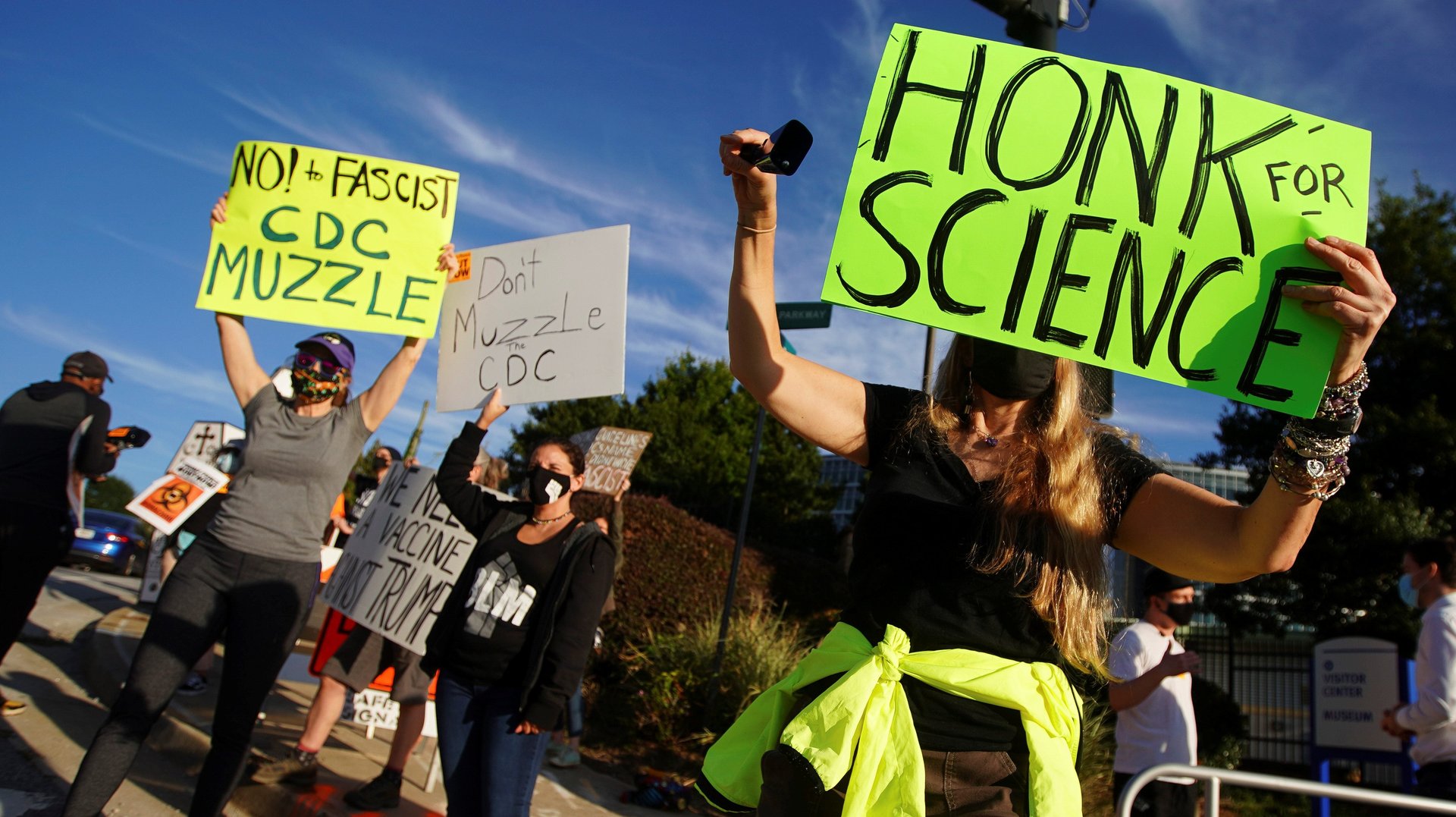With every reversal of Covid-19 guidance, the CDC is losing the battle for public trust
The coronavirus pandemic lays bare how scientific research can be used as a political tool.


The coronavirus pandemic lays bare how scientific research can be used as a political tool.
Over the past few days, the US Centers for Disease Control (CDC) revised and then re-revised its guidance on whether the novel coronavirus can be spread by airborne transmission. On Sept. 18, the agency updated language on its website to state that the virus can spread across distances further than six feet via airborne transmission, especially in poorly ventilated indoor areas. Just three days later, it deleted this reference. The CDC website now states that it is updating recommendations on airborne transmission, and the agency told Quartz the update was published “without appropriate in-house technical review.”
In the scientific community, it’s widely established that the coronavirus does indeed spread this way. The World Health Organization acknowledged the airborne spread of particles in July and hundreds of scientists have written about this form of contagion.
This week’s change follows another major CDC reversal, as well as ongoing reports that Department of Health and Human Services (HHS) officials push back on CDC messaging that interferes with US president Donald Trump’s more optimistic stance. Last month, the CDC issued guidance that people without symptoms who have had close contact with infected patients “do not necessarily need a test.” That stance was strongly criticized by health experts, and it later emerged that the CDC’s guidance had been written by HHS and posted on the CDC website without the standard scientific review process, according to the New York Times. Last week, the CDC reversed its position, now stating that asymptomatic people who have had close contact with infected patients should be tested.
As scientists’ verdicts are increasingly filtered through political prisms, the CDC is bearing the brunt of these debates, and its reputation is taking a hit. Some 67% of American adults trust the agency to provide reliable information, according to a poll from the nonpartisan Kaiser Family Foundation conducted from Aug. 28 to Sept. 3. That’s down 16% since April. The survey of 1,199 adults also found that 42% think the CDC is paying “too much attention” to politics when issuing guidance on coronavirus.
Regardless of whether the CDC’s flip-flops reflect political interference, these abrupt changes erode the weight of CDC guidance at a time when Americans need it more than ever. Every shift in recommendations raises questions about whether the agency faces political pressure, and why coronavirus knowledge is up for debate. Even if the CDC does finally land on scientifically sound guidance, the confusions and revisions can’t help but undermine the message.